MercoPress. South Atlantic News Agency
Politics
-
Thursday, February 18th 2010 - 01:17 UTC
Argentine protests Falklands oil drilling before the Rio Group and UN
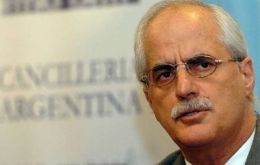
Argentina will be pressing next Monday for support from Latinamerica and the Caribbean, and on Wednesday at United Nations, in its dispute over the oil drilling round about to being in the Falkland Islands.
-
Thursday, February 18th 2010 - 00:06 UTC
Uruguayan main opposition leader praises pragmatism of president elect
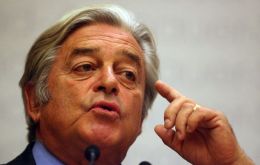
Uruguay’s opposition main leader and former president Luis Alberto Lacalle (1990/1995) praised the pragmatism of president elect and former guerrilla leader Jose Pepe Mujica who will be taking office next March first.
-
Wednesday, February 17th 2010 - 23:55 UTC
Greece defends controversial debt-swaps masterminded by Goldman Sachs
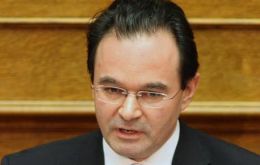
Greece has defended a controversial deal that may have masked the extent of its budget woes and has annoyed the European Union. The 2001 debt-swap deal with Goldman Sachs was legal under EU rules, Finance Minister George Papaconstantinou told the Greek parliament.
-
Wednesday, February 17th 2010 - 23:47 UTC
Chilean president-elect criticizes Castro and reaffirms support of Peru, Bolivia
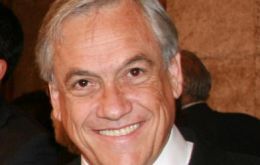
Chile’s President-elect Sebastian Piñera affirmed that his government will strongly defend human rights once taking power on March 11 by giving much more attention to Cuba than did his predecessors from the centre-left Concertacion coalition.
-
Wednesday, February 17th 2010 - 17:01 UTC
Falklands drilling will go ahead despite Argentine shipping movement ‘decree’

DRILLING in Falklands waters will go ahead as planned despite an Argentine decree aimed at handicapping shipping movement between the Islands and South America. From London British Foreign and Commonwealth Minister Chris Bryant reiterated that “we have no doubt about our sovereignty over the Falkland Islands and we're clear that the Falkland Islands Government is entitled to develop a hydrocarbons industry within its waters”.
-
Wednesday, February 17th 2010 - 03:24 UTC
Mrs. Kirchner calls UN to force UK to Falklands’ sovereignty negotiations

Argentine President Cristina Fernández de Kirchner defended her decision to place stronger controls on navigation and shipping within the Falklands called on the United Nations to force the United Kingdom to come through on negotiations over the sovereignty of that territory.
-
Wednesday, February 17th 2010 - 03:05 UTC
Seventy journalists killed in 2009, the worst in thirty years, says CJP
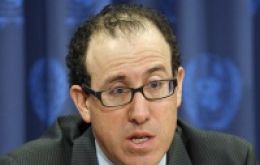
Seventy journalists were killed in 2009, making it the worst year since records began 30 years ago, the Committee to Protect Journalists says. A massacre of 31 journalists in the Philippines broke the old record of 67 deaths, set only in 2007.
-
Wednesday, February 17th 2010 - 02:58 UTC
Power strapped Venezuela rejects Colombian supply offer
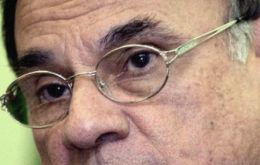
President Hugo Chavez's government said it is not interested in buying electricity from neighbouring Colombia despite Venezuela's struggles with severe energy shortages.
-
Wednesday, February 17th 2010 - 02:05 UTC
UK stern reply to Argentine intention of controlling Falklands’ sea trade

The Argentine government’s announcement on Tuesday that all cargo navigating between Argentina and Falklands/Malvinas Islands “will require previous authorization” received a quick and energetic response from the British government through its embassy in Buenos Aires.
-
Wednesday, February 17th 2010 - 01:39 UTC
Mr. Kirchner prepares comeback with his mind on the 2011 election
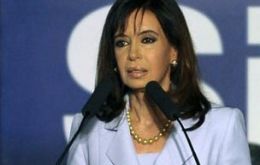
Former Argentine president Nestor Kirchner (2003/2007) is scheduled to reappear in a political rally next week for the launching of his presidential pre-campaign, the first such appearance since he underwent an emergency and delicate surgery in his carotid earlier in the month.
